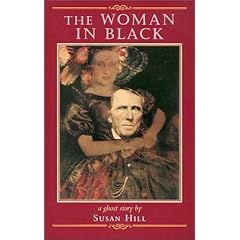
This is going to be my last blog post for a few weeks probably. I’m headed to Washington DC for much holiday cheer. Maybe I’ll see you there. In the meantime, please remember those in need, and do them some small kindness if you can.
Now that I have the important part out of the way, what about this whole holiday season concept? Unlike most Americans apparently (as the surveys tell us) I like it. Then again, having been widely acknowledged for many years as on my way to nowhere, I don’t feel like I’ve let anybody down, I don’t feel pressure to buy anybody anything fancy, and I don’t have to pretend to love anybody more than I do. Plus I even get a few weeks off. So all told I can enjoy myself. And I can also say, this whole holiday season concept is a little ridiculous, isn’t it? I’m not going to get into the issues of religion or the capitalist uses of Christmas right now, although I’d be glad to be serious about them some other time. Let’s just say that they’re part of the human pageant at this time of year, one which offers a wide palette of outrageous behavior very useful for any investigation of the human animal.
Take the holiday party. Paraphrasing Guy Debord in Panegyric, I can say that I have written much less than most people who write, but I have been to many more holiday parties than most people who go to holiday parties. And holiday parties are, to put it mildly, ridiculous, which is directly linked to the way people behave when at them. More on that in a moment, and points to any of you who know what Debord’s original line actually is.
But what about you? Going to any holiday parties this season? Ones that involve writers? Ones that don’t? My blog comment box wants to hear your thoughts on holiday season parties. Poems, anecdotes, tall tales, whatever. Tell the truth if you dare or make something up. Where will you be this holiday season? If the answer isn’t interesting, make it sound like it anyway.
In the meantime, I’m leaving you with a little piece of mine about holiday season parties that some people in the past have enjoyed and some others might enjoy if I post it here. It was published in my book Haze, and was originally part of a manuscript called Communal Perversities which long ago fell apart much like I did and morphed into other things. I think the piece still reflects the truth of the holiday season office party. If it offers some small pleasure, I’m glad. I wish all of you a wonderful season and a Happy New Year. With luck I’ll even wish it to you in person.
-----------------------------------------------
Perhaps nothing produces more exactly the subtle horror of current social relations than the office Christmas party. There are far worse nightmares, undoubtedly. Yet the never quite located, permeating sickness of the office party is the perfect expression of developed alienation for three reasons. One, everyone there appears as though they are there to see each other, when really they are there to protect their tenuous economic circumstances. Two, it's a party and supposed to be fun, while fun is precisely what it is not about, indeed while anyone seeking fun could more likely find it anywhere else, literally. Three, in its apparently voluntary, benevolent largesse, it appears to make people welcome and to feel like they belong, while it displays exactly that to which no one is welcome, namely, a voluntary gathering of like-minded others who work together simply because they prefer to do so.
Thus it displays its alienation through the fact that no one can state openly why they are there. And this is true even for those who believe they are, who in fact are, having fun.
For all these reasons, people who avoid office Christmas parties are only avoiding their feelings. They don't wish to know, to experience directly, and deludedly believe that avoiding the truth will make it not so. I myself go to every office Christmas party to which I am invited, arriving early and staying late, chatting, eating, and drinking, until the sickness congratulates my entire body, until each toast I have made can be faithfully dedicated to its exact opposite.















